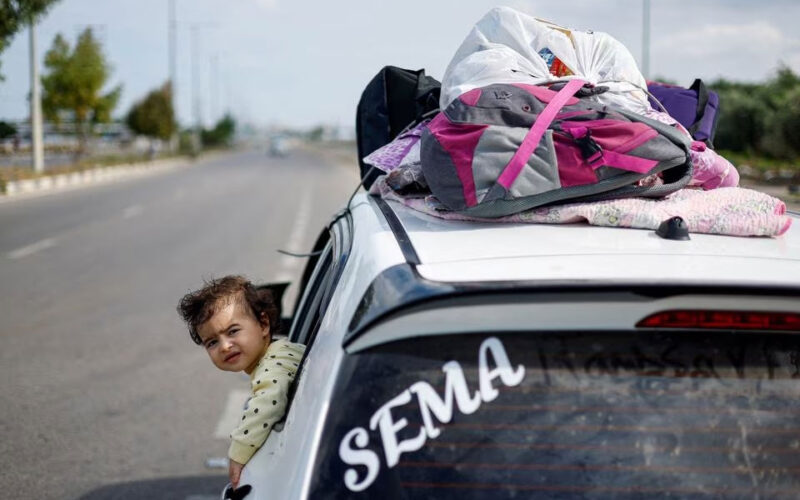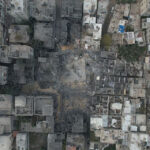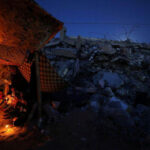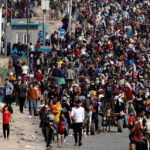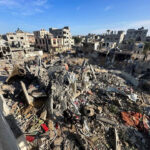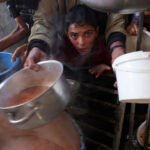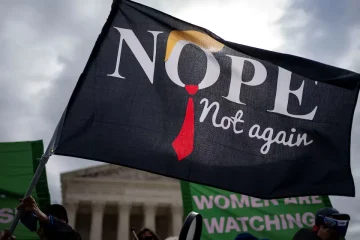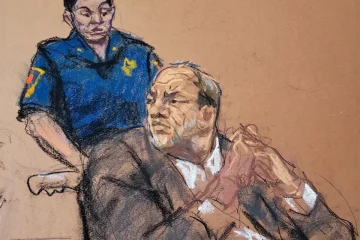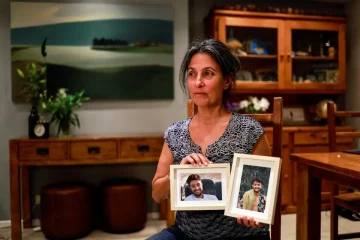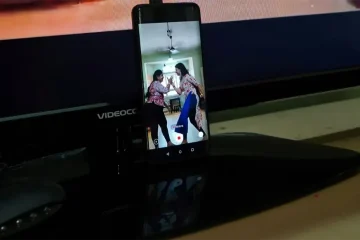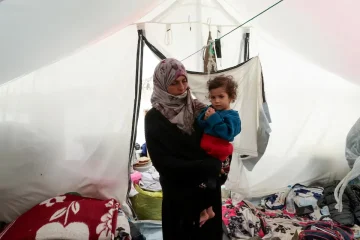THE Abu Marasa family are returning to Gaza City, having fled after Israel ordered all civilians to go south or face bombardment, saying they would rather die at home after an air strike hit the house next to where they were sheltering.
Bombing in the south of the tiny, crowded Gaza Strip killed scores of people overnight, local authorities said, and the Abu Marasa family is one of several Reuters spoke to that have concluded they may as well go back to their homes in the north.
More than a dozen members of the family were crowded into a car on the edge of Khan Younis, the main city of southern Gaza, their belongings strapped to the roof for the perilous journey back north through the bombardment.
“Why should we be martyrs in Khan Younis? We would better die as martyrs in our houses. Let the whole building fall on our heads,” said Saleem Abu Marasa, preparing to drive back.
Israel began its most intensive-ever bombardment of the Gaza Strip, a 45km-long (25-mile) enclave home to 2.3 million people after the militant Palestinian group Hamas rampaged through Israeli towns killing 1,300 people on October 7.
The Israeli military said last week all civilians should leave the northern half of the enclave, including the main Gaza City, as it prepares a ground assault to wipe out Hamas. Israeli bombing has killed 2,800 Palestinians in 11 days.
Even without the bombardment, a humanitarian disaster is unfolding across the enclave as Israel blocks off all power, water, medicine, food and fuel.
The evacuation order has stirred fears in Gaza, where many inhabitants are refugees, that they will never be able to return home. The United Nations human rights office warned on Tuesday that the demand could breach international law.
The United Nations said heavy bombardment was taking place across the enclave, with strikes hitting Khan Younis and other parts of the south where Israel had told people to go.
“Those who managed to comply with the Israeli authorities’ order to evacuate are now trapped in the south of the Gaza Strip, with scant shelter, fast-depleting food supplies, little or no access to clean water, sanitation, medicine and other basic needs,” said U.N. rights office spokesperson Ravina Shamdasani.
A crowd on Tuesday was working through the rubble of a building destroyed by an air strike, looking for survivors and bodies of those killed.
Rescue workers carried an injured man, smeared with dust and blood, past a bomb crater and fallen debris, before a paramedic ran from the ruins holding a baby wrapped in a blanket, feeling in vain for a pulse.
‘DEATH IS EVERYWHERE’
Hattab Wahdan had fled Beit Hanoun in northern Gaza and travelled to Khan Younis with his family. An overnight Israeli air strike hit a house near the one where he is staying, killing several people who had, like him, fled from the north.
“They told us the south was safe. They forced us, displaced us from our homes and we came to Khan Younis because we have children,” said Wahdan, who said Israeli strikes had destroyed his home during conflicts in 2006 and 2014.
“We found things are the same. Death is everywhere. So going back is better for us,” he said, describing the situation in Khan Younis as “hell”.
Israeli strikes are still pounding northern Gaza. As the sun rose on Tuesday, blasts struck behind a row of housing blocks in Gaza City, sending up balls of flame followed by massive pillars of smoke, a Reuters video link showed.
Residents there spoke of unprecedented devastation, with whole districts smashed. But many residents had decided to stay put, some of them afraid they would be forced all the way to Egypt and made refugees twice over.
“It is true that we have no electricity, no water, and no internet, but we have what’s more important, our determination to resist until death,” said Shadi, a father of six who works as a civil servant in Gaza’s Hamas-controlled administration.
“We are not going to give them what they want, they want another displacement and they will fail. We may die but we will be buried here, not in Sinai,” he told Reuters by phone from Jabalia refugee camp.
Reuters reporters by the road out of Khan Younis said they saw several dozen vehicles packed with people and belongings heading north.
In the family car, Raghda Abu Marasa was sitting in the back, jammed in with other adults, with two tiny children on her lap.
“Now we are returning home even though our life will be in danger and it will be difficult for us and our children,” she said. But that was better than death away from home, she said.

